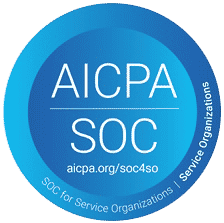Migrant and seasonal workers are the backbone of the U.S. agriculture sector. According to the 2019–2020 National Agriculture Workers Survey, nearly two-thirds (63%) of crop workers were born in Mexico, emphasizing the reliance on foreign-born labor.
Despite their essential contributions, these workers have historically faced challenges such as inconsistent pay and unsafe working conditions. The U.S. Department of Labor notes that foreign farmworkers are among America’s most vulnerable workers, frequently facing workforce abuses like wage theft, passport confiscation, and threats of physical violence.
To address this, the Migrant and Seasonal Worker Protection Act (MSPA) was enacted to establish clear guidelines to safeguard workers’ rights and ensure fair treatment. By mandating standards for wages, working conditions, and recordkeeping, MSPA aims to create a more equitable and transparent employment landscape. Failure to adhere to these regulations can lead to costly fines, reputational damage, and a workforce feeling undervalued and exploited.
However navigating these regulations can be complex. That’s where effective workforce management plays a transformative role, helping businesses stay compliant while streamlining operations.

What does the MSPA do?
The Migrant and Seasonal Worker Protection Act is designed to ensure fair treatment and safe working conditions for one of the most vulnerable labor groups in the U.S. To achieve this, the Act outlines several key provisions that businesses employing migrant and seasonal workers must follow.
As of January 16, 2024, employers who fail to adhere to any of these regulations are subject to a civil penalty of $3,047 per violation. Repeated or willful violations may result in criminal charges, including up to three years’ imprisonment.
1. Wage Transparency and Timely Payments
Employers are required to provide workers with clear and accurate information about wages, including rate of pay, deductions, and payment frequency. Timely payment is also mandated to ensure all workers receive their earnings without delay. Failure to meet these standards can result in costly wage disputes and litigation. Repeated violations may result in suspension or revocation of MSPA certification, effectively halting operations.
2. Disclosure of Working Terms and Conditions
MSPA mandates that employers disclose, in writing, essential employment terms before migrant and seasonal workers accept a job. This includes details about job duties, wages, hours, work location, housing, and transportation arrangements. These disclosures must be provided in a language the worker understands. Transparent communication helps workers make informed decisions during recruitment, reducing misunderstandings that could lead to fraud accusations.
3. Safety and Housing Standards
Housing must meet specific Occupational Safety and Health Administration (OSHA) standards for temporary labor camps, including sanitary facilities, clean drinking water, and safe structural conditions. This ensures workers have access to safe and habitable accommodations, reducing the risk of health issues and accidents. Employers providing substandard housing may be ordered to cease housing operations, resulting in forced relocations and reputational damage.
4. Recordkeeping
Employers must maintain detailed records of hours worked, wages paid, and terms of employment for a minimum of three years. These records are crucial for demonstrating compliance during audits or investigations. Inadequate or incomplete recordkeeping can lead to civil penalties for every individual record not maintained.
Compliance Challenges With Manual Processes
With fines reaching thousands of dollars per violation, businesses must ensure accurate recordkeeping of all employee data, transparent disclosure, and adherence to housing and wage standards. However, manual scheduling and workforce management processes often exacerbate MSPA compliance challenges, creating unnecessary risks and inefficiencies.
Inconsistent Recordkeeping
Maintaining accurate and up-to-date records can be difficult with manual processes, which are prone to human error—especially when dealing with diverse employee types (i.e., full-time, part-time, temp, and seasonal workers). These challenges are amplified during peak seasons when demand surges.
Errors such as missing timesheets, inaccurate hours logged, or misclassification of workers often arise from outdated spreadsheets or fragmented recordkeeping systems. Without a centralized platform, data discrepancies can go unnoticed, leaving businesses exposed to audits, fines, or legal disputes.
Payment Discrepancies
Manual payroll calculations are especially vulnerable to mistakes such as underreporting hours or misapplying wage rates. Seasonal spikes in labor exacerbate these risks as businesses rush to onboard workers and process wages without robust checks in place. Unintentional errors, such as overtime miscalculations or missing deadlines, can lead to wage disputes and MSPA violations.
Businesses that fail to integrate their payroll systems with the final schedule face significant challenges. For example, if two employees swap shifts and the change isn’t accurately reflected in the payroll system, one employee might be overpaid while the other is underpaid. Without automation to ensure seamless data synchronization, businesses may also struggle to produce reliable pay records during audits, exposing themselves to potential fines.
Lack of Real-Time Adjustments
Manual scheduling offers little flexibility for adapting to real-time changes, such as unforeseen worker absences or fluctuating labor needs. This can result in overworked employees, non-compliance with housing occupancy limits, or missed payment timelines—all of which violate MSPA standards. Without automated alerts or centralized oversight, spreadsheets and disconnected systems make it harder to ensure workers are treated fairly and paid properly.
Administrative Burden
Relying on manual workforce management creates an administrative bottleneck. Managers must devote significant time to paperwork, redundant data entry across different enterprise systems, and compliance tracking. This diverts focus from other critical business operations, such as improving employee engagement with investments in continuous training or ensuring staffing levels align with production demands.
This inefficiency not only slows response times but increases the likelihood of oversight or errors. As regulations grow more complex and penalties are adjusted for inflation year after year, businesses that rely on outdated methods risk making increasingly costly mistakes.

How Indeavor Supports MSPA Compliance
Navigating the complexities of MSPA compliance requires a comprehensive and proactive approach to workforce management. Indeavor’s holistic scheduling solution is designed to simplify compliance, mitigate risks, and improve operational efficiency.
With Indeavor’s enterprise-ready capabilities, businesses in the agricultural sector can confidently meet the requirements outlined by the Migrant and Seasonal Worker Protection Act—all while reducing administrative burden. With automated compliance at the point of scheduling, Indeavor helps organizations ensure that every employee is treated fairly and with dignity.
- Centralized Employee Data: Consolidate all workforce information—full-time, part-time, temp, and seasonal—into a single, accessible platform. This centralization ensures accurate records of employment terms, classifications, and worker availability.
- Transparent Recordkeeping: Have records securely stored and readily available for audits, saving time on adherence to the three-year rule. Indeavor automatically generates detailed logs of hours worked, wages paid, and all other employment terms.
- Real-Time Schedule Adjustments: Reflect last-minute changes to the schedule (e.g., shift swaps, volunteered overtime, etc.) instantly for accurate payroll data.
- Documentation of Hours Worked & Wages: Capture precise data on who worked, when, and for how long, ensuring that hours are accurately logged and linked to corresponding wage calculations.
- Integration With Payroll Systems: Eliminate the need for redundant data entry and minimize the risk of discrepancies. Real-time schedule data flows directly into payroll, ensuring that all workers are paid correctly based on their actual hours worked.
Invest in Proactive Compliance to Safeguard Your Workers
Businesses that fail to adapt to modern workforce management solutions face heightened legal and financial risks, as even minor violations can result in significant penalties and reputational harm. By prioritizing proactive compliance, organizations can mitigate these risks while unlocking a range of benefits.
Automating workforce management improves recordkeeping accuracy, ensures timely wage payments, and simplifies the auditing process. This, in turn, encourages greater employee trust and satisfaction, which are essential for attracting and retaining seasonal labor in competitive markets. Streamlining operations also reduces administrative burdens, freeing managers to focus on strategic initiatives rather than time-intensive compliance tracking.
Overall, a commitment to fair and transparent practices builds a positive reputation in the agricultural sector. This is an invaluable advantage in an industry where worker loyalty and public perception are critical.
Invest in a robust workforce management solution like Indeavor today to safeguard your business, protect your workers, and thrive in a competitive market.
About the Author
Claire Pieper is the Digital Marketing Specialist for Indeavor. In her role, she specializes in crafting strategic and engaging content, ensuring that customers are well-informed. Claire is dedicated to enhancing the customer experience and optimizing the user journey through Indeavor’s solutions. To learn more or get in touch, connect with Claire on LinkedIn.







